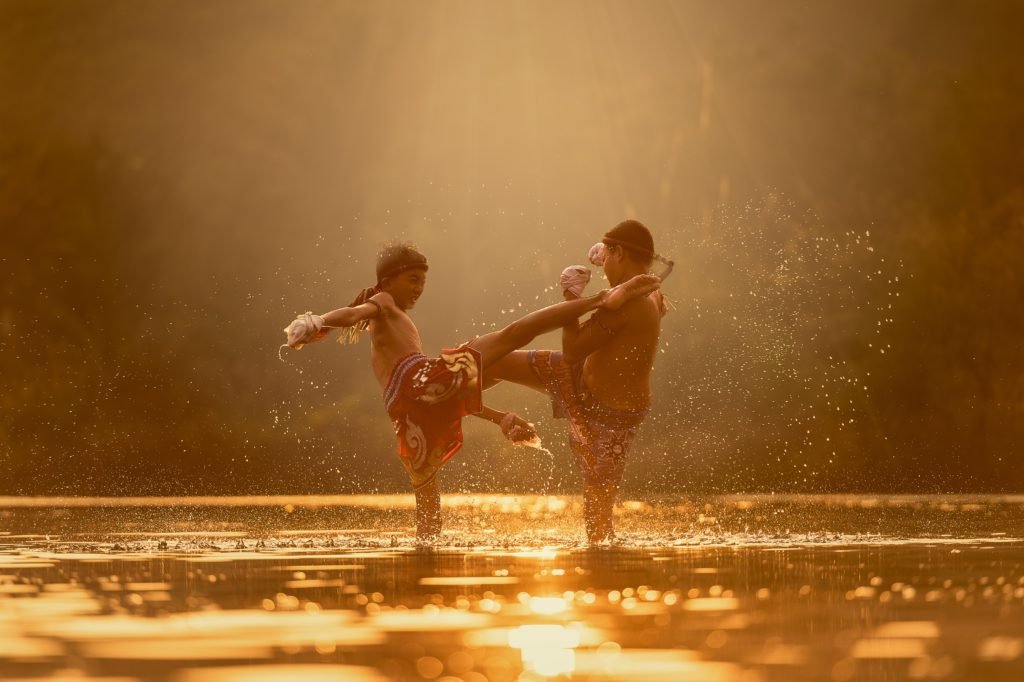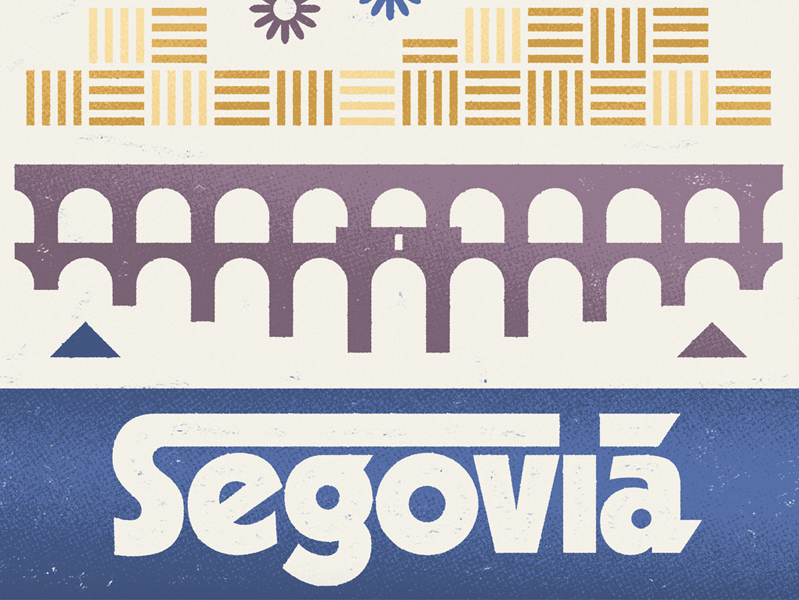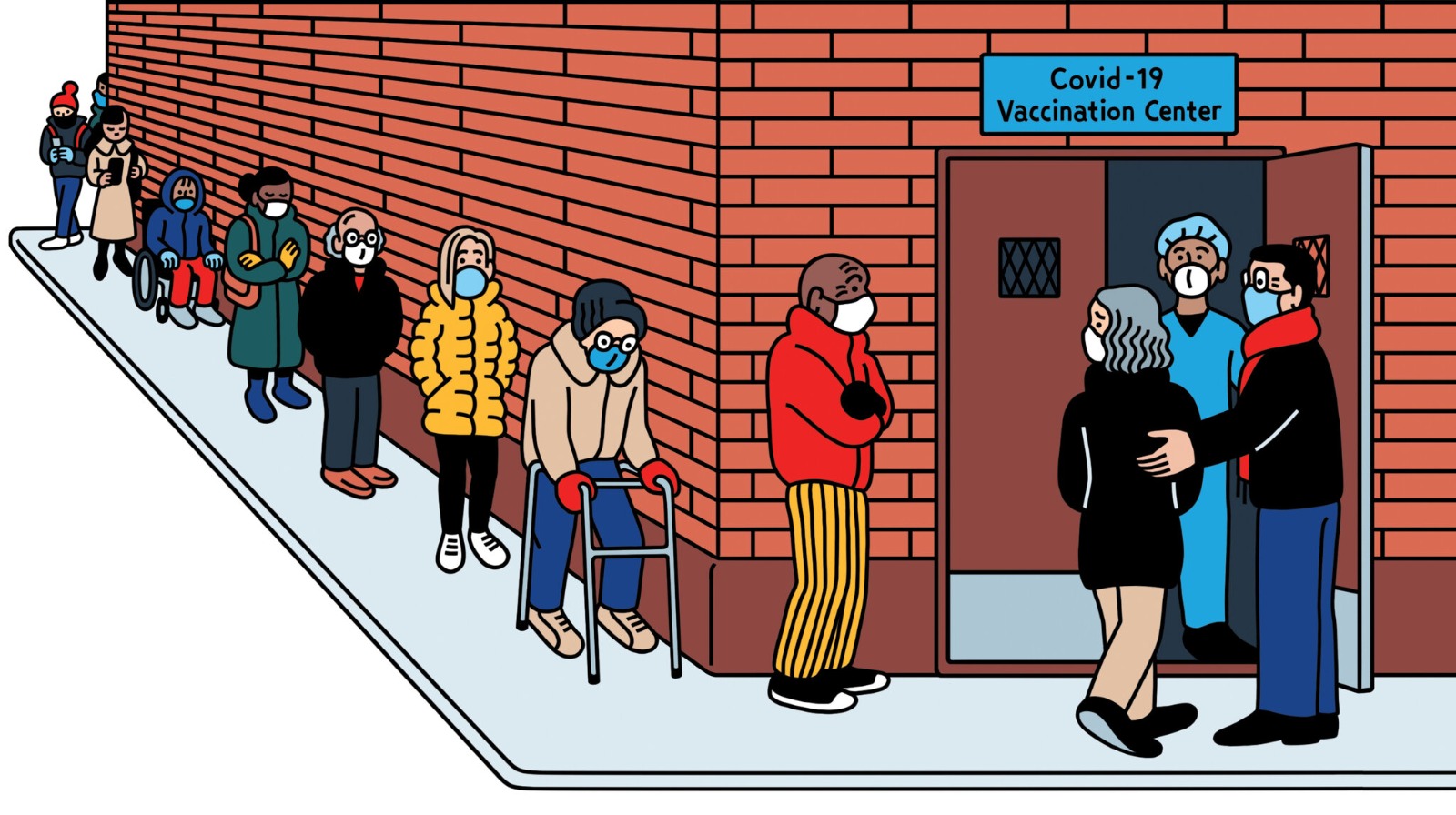
It’s a strange sensation to walk into a gym for your first sparring session. As a skinny and frail 15 year-old, it was downright terrifying. In fact, as I tried to calm down the crawling sensation in my stomach, I took quick glances around the room to marvel at how perfectly innocuous I looked in comparison to the short-haired, muscular and tattooed men who were busy putting on gloves the size of my head. The timer for the first round began, and I could feel a sense of dread as punches and kicks started flying across the whole gym. By the time an hour had elapsed, however, I walked out of the session completely astounded: I hadn’t had so much fun in a long time.
I came back to sparring again, and again, and again, until I eventually started to realize some changes in my way of being. I became much more confident in my physical skills, the friendships I made felt much more mature than the ones at school, and I developed a sense of humbleness at what I still had to learn and could teach others. In fact, after years of training and experiencing so much of what martial arts can offer, I’ve come to a singular realization: fighting is not just some savage sport you see on tv or a mindless way for brutes to blow off some steam. Martial arts are actually a unique path for one’s personal growth, and can contribute to our lives in ways that are barely ever talked about, ways that can shape the way we see the world itself.
Psychological Benefits
The first reason why martial arts can have a critical role in our growth is the fulfillment they give at a deeply psychological level. Chuck Palahniuk, legendary author of “Fight Club”, explained in an appearance on the Joe Rogan podcast that one of the most neglected aspects of our lives is our need for rough play, which is why his book seemed to resonate so much with his audience. It did so to such an extent, in fact, that after its theatrical release, dozens of illegal fight clubs sprung up in the United States. Had Palahniuk struck a hitherto unnoticed nerve in society?
In his publication “Play and the Regulation of Aggression”, Dr. Jordan Peterson, a clinical psychologist and professor at the University of Toronto, seems to reinforce this hypothesis. Dr. Peterson reveals that this sort of physical activity goes way back to the rough & tumble play we engaged in as kids with our parents (especially our fathers), which teaches us about our physical capacities and how to physically yet playfully interact with others. According to Dr. Peterson, such rough activity releases high levels of dopamine, as well as opiates for circuits in our brain related to affiliative behaviors. It shouldn’t surprise us to see then, as is commonly the case, a great feeling of comradery during sparring sessions: even though the people involved willingly signed up to be punched in the face, it’s inevitable to find fighters joking around, smiling, and generally being very warm towards each other. Fighting is in this way an act of nature, one that brings us back to the kind of play we enjoyed so much as children and can still have an effect on our way of socializing today.
Mature Friendships
Taking this idea further, one can learn to develop complex friendships through these enjoyable activities that require self-restraint, respect, and mutual care so as not to hurt each other excessively.In fact, martial arts are the key to maturing one’s friendships through emotional control: if you let yourself get carried away physically through either pride or mindless aggression, you will inevitably find yourself on the bad side of many. To be able to spar with someone is to be able to dance with them, moderating your intensity in such a way that both of you remain safe and comfortable with the level of aggression while still pushing yourselves.
As Dr. Peterson describes it: “If I can play with you, I can adapt my actions and reactions to yours. I can allow your motivational and emotional states, your reference frame, to modulate mine. I can start to act out your frame, to understand and to embody it. […] This means that we can […] benefit mutually from the consequent control of aggression – not so much because of inhibition, but because of the alignment of mutual desire.”
Real life works in much the same way: there is always a delicate balance between those things which are or are not within the boundaries of friendship, and emotional control as well as a good grasp of what others are feeling are both critical to sustain these relationships. The growth we can reach through the complex self-inhibition and the development of empathy that fighting offers is critical to evolve in our relationships, and allows us to approach other human beings in ways that few other activities can teach.
Father Figure
Finally, martial arts has the immense power to help us mature through the guidance of a coach or sensei. The influence of this character in a fighter’s story is massively underrated: a coach doesn’t just teach you how to throw a punch – he’s the father figure who will teach you to control your thoughts and emotions during the hardest moments of a fight, who will pass his knowledge onto you as though you were his own son, and who will make sure you are prepared to defend yourself and others when life gives you no other choice.
Chuck Palahniuk expands on this idea through the concept of the secondary father, the man a hero agrees to learn from and be shaped by at the beginning of his adventure. We are all born with a biological father, but eventually we must distance ourselves from him and enter into an apprenticeship with another father figure in exchange for mastery of a skill and ourselves. Such a master must make sure to teach his children how to defend themselves in the world, and ensure that they learn from each other while using his superior experience and physical size to regulate the training environment. It’s precisely from such an authority that we gain habits such as emotional and physical control, determination, and mental toughness, all critical aspects of success in life. For young men and women in particular, their development is essential for maturity and the capacity to deal with life’s battles, both physically and mentally.
Martial arts are not just a way to vent your anger or defend yourself during conflict. They are a path to life, a philosophy that allows for both self-mastery and a greater ability to interact with the environment around us. Fighting is essential in our journey through personal growth, and if we learn how to incorporate it into our lives, we will soon become ready for anything we may be faced with in the future, and contend with the hardest of battles round after round







